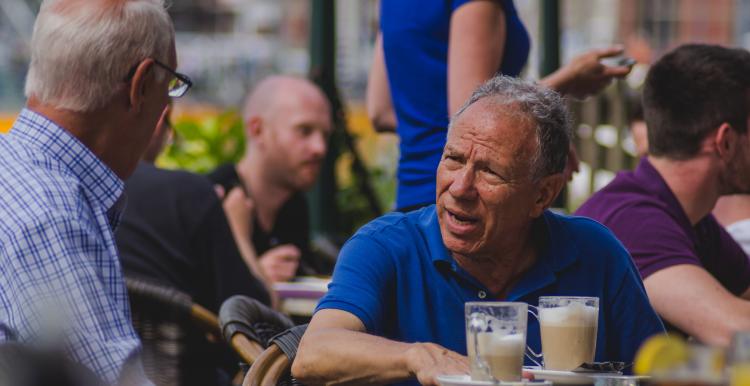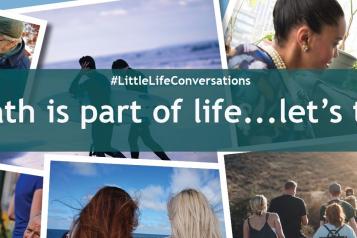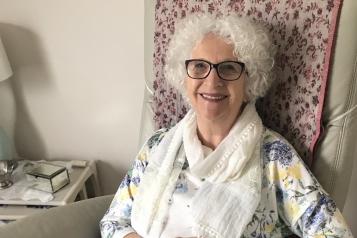Little life conversations

Families don’t discuss their final days enough, even when in the midst of a terminal prognosis.
This can lead to wishes not being granted, family heartache and missed opportunities for proper goodbyes. As a Community we need to normalise the conversation about death and dying. There is a call for a cultural shift to de-medicalise death within our society and enable better end of life planning.
What does a good death look like?
In the past, when someone’s life couldn’t be saved, instead of going to hospital they remained at home, meaning young people saw plenty of deaths and mortality did not take anyone by surprise. Today when people do see death, it is often in a hospital setting and occurs while medics are in the process of trying to prevent the death from happening.
Of course, we are fortunate that modern medicine can prevent people dying from reversible conditions, but are we driven these days to attempt to reverse dying at whatever cost? Instead we should stand back and ask ourselves: “Is this going to be reversible? And if not, then what is the best way of dealing with that?".
Do we surround a person with lights, tubes and machinery as they reach the final hours of their lives? Or do we give them a few more days in a comfy bed, possibly at home, looking out of the window at their garden, in a comfortable and familiar setting?
What would you want for your death?
We have launched #LittleLifeConversations. A campaign to encourage our community to engage in discussions about the final days of their lives. When a life is brought in to the world there is so much preparation. A home birth or hospital? Medication or as natural as possible? Water? Music? Candles? Hypnotherapy? Lessons are given on the natural course of birth, wishes are documented.
#LittleLifeConversations seeks to get families doing just that, having little chats about what they would want in death. And just leave it there. Without drama, upset or fear, just a exchange of understandings between loved ones on how we each want our finals days to be managed. Similar to a birth plan. Home or somewhere else? People or peace and quiet? Radio, playlist, silence, conversation? Tea, coffee, G&T, juice? Spiritual ceremonies? Is it about quality of life and comfort, or length of life at all costs? What would you want your care to look like if you couldn’t make decisions for yourself? So much to think about, whether or not you’re expecting death soon. Little conversations about our wishes, that can ebb and flow through our most important relationships. Documented so when the time comes everyone just knows what needs to be done.
Resources to help you start a conversation
- Compassion in dying - help preparing for the end of life
- My decisions - a place to record your end of life wishes online
- Age UK - this booklet is useful whatever age you are
- Dying matters - aims to help people talk about the matter of dying
- Organ donation - you can donate your organs from birth to 85 yrs old
- Cornwall hospice care - information source for documenting your wishes

Dr Kathryn Mannix ‘Dying is not as bad as you think’
In this powerful video, Dr Kathryn Mannix humbly expresses her views on why we should talk about dying and why we should reclaim the knowledge once held in our communities, about the course of normal human dying – a recognisable process that we can prepare for and support each other with. She describes this ‘gentle process’ in the film.
Dr Kathryn Mannix has worked in palliative care since 1986. She is a consultant in palliative medicine and founder member of the Association of Palliative Medicine. She launched the UK’s first dedicated palliative cognitive behavioral clinic and has been a long-time advocate for better end of life care. Her book With The End in Mind is based on her years of experience with palliative care patients and their families.
“By thinking ahead with our loved ones, we can frame a statement of our wishes to guide them when we no longer can. In fact, the conversation with them is probably more important than the statement of preferences itself.”
Join the conversation
Follow our campaign #LittleLifeConversations @HWCornwall


